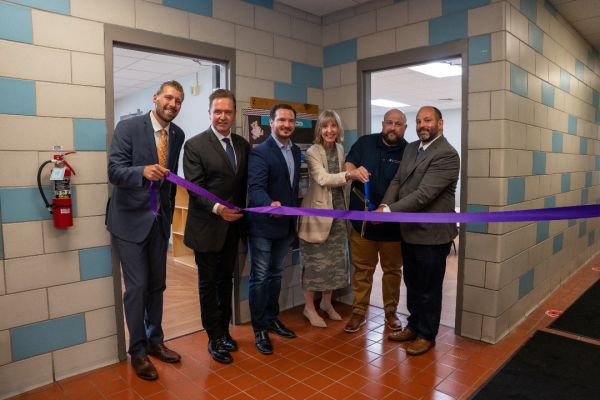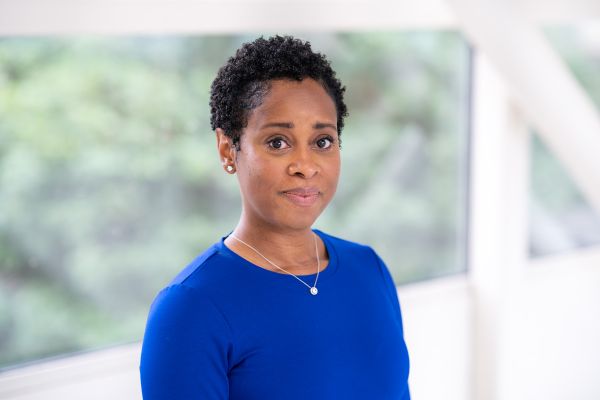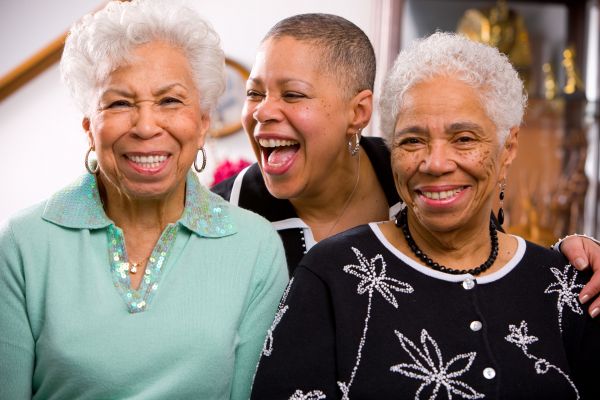Did you know you can help influence cancer research without having to go through medical school?
Roswell Park Comprehensive Cancer Center is looking for a few ROCKstars to help direct the future of treatment. The Research Oncology Community Knowledge program, better known as ROCKStars, started in 2017 as a way to help ensure survivors, patients and caregivers have the opportunity to share their thoughts and experiences with doctors and researchers.
Now the program is expanding, says Nikia Clark, a Senior Community Outreach and Engagement Manager within Roswell Park’s Community Outreach and Engagement Team and Program Manager for ROCKStars. “Anyone who is interested in expanding the voice of caregivers and the healthy community are welcome to join. I’ve been asked to put together some focus groups and smaller advisory boards for research studies and that does not require someone to have had cancer or be a survivor.”
But what is a ROCKStar? It’s a volunteer who wants to sit in on panel discussions, or in focus groups, or write letters. Those who are cancer survivors share their experiences with treatment, providing valuable information to doctors and researchers as they draft new treatment protocols or discuss new therapies involved in clinical trials. Caregivers can provide insight on what it’s like to be closely monitoring someone going through cancer, giving their perspective on what treatment did to the patient’s quality of life, how it impacted their health and what recovery looked like for their loved one.
“Sometimes that feedback and insight is missing out of the equation when you’re talking to scientific, academic, research-minded folks,” Clark says. “Sometimes that personal perspective is missing and it’s needed. The ROCKStars program is all about the importance of research advocacy.”
When applying for grant funding in support of new trials, researchers are required to include and work with patient advocates who offer insight that cannot be obtained in labs alone, Clark says. Understanding the real side effects experienced by patients can help shape future trials. ROCKStars provide this commentary and the important lived experiences doctors need to hear in order to influence their work with the patients’ experience in mind.
“Two of our ROCKStars were invited to attend a translational research conference that’s typically a basic science conference but they wanted to have patient perspectives,” Clark says. “They talked about their journey, being involved in advocacy and being involved in research. Some of our ROCKStars write letters of support for grants that are coming up. They do that so our researchers can secure the funding they need. Some of our advocates look over surveys used in studies to say whether the wording makes sense and provide an estimate of how long it would take them to fill it out in addition to whether they had any questions about the survey itself.”
Never miss another Cancer Talk blog!
Sign up to receive our weekly Cancer Talk e-newsletter.
Sign up!ROCKStars are invited to help out as time permits, but “once a ROCKStar, always a ROCKStar,” Clark says. “I usually talk to people one-on-one to explain the program and get them signed up. When there’s an opportunity to be part of a focus group, or if we need people to write letters, I reach out to the group and see who wants to be involved.”
The group is intended to reflect the community of people served by Roswell Park, in addition to the neighborhoods in which Roswell Park operates, and people of African American and Hispanic/Latinx backgrounds are especially encouraged to participate. Researchers know that minority communities are often underrepresented in clinical trials and underserved by the medical community in general, making their voices all the more important to seek out and include in setting up new research.
Anyone interested in signing up to be a ROCKStar can email Nikia.Clark@RoswellPark.org.



